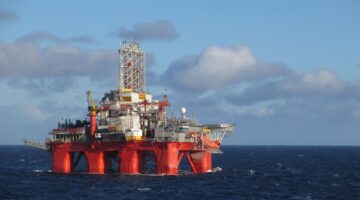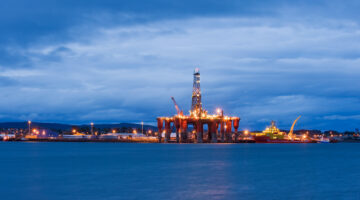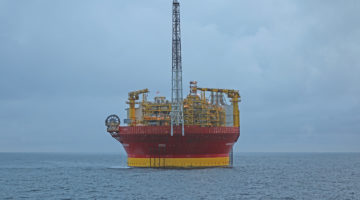Last week we spent a very informative day at P&J Live in Aberdeen, Scotland. This airy, modern and environmentally friendly building is the new home of SPE Offshore Europe, one of the most significant international events for upstream of oil & gas companies
Spotlight on energy transition
The day started early with a business breakfast held by the Aberdeen and Grampian Chamber of Commerce on energy transition. Before the presentations, there was an opportunity to network with others from the oil and gas community (over 300 people attended). We then enjoyed presentations from a range of panellists responding to the questions “What does low carbon mean for the future of the North Sea?” Liv Hovem of DNV GL advised that ‘bold decisions’ will need to be made: “We are locked into carbons, how do we unlock?”
There was the general consensus that the answer does not lie solely in the hands of oil and gas companies; it isn’t just about finding the right technologies. Energy futurist at EY, Paul Bogenriederrecognised “The future’s in the hands of the policymakers“, but warned that “…a change in behaviour is tremendously difficult to achieve“.
An appetite for reduced carbons and renewables
The panel highlighted that the North Sea should be proud of our past achievements, leading the way in reducing the carbon footprint through the displacement of coal for natural gas.
We have also seen the North Sea leading the way in the introduction of renewables over recent years
“The North Sea is tenacious at trying new things and working on new solutions… I’m proud to be part of it“,” said Neil Saders from Baer Hughes.
A sustainable future for oil and gas
The theme introduced at breakfast also featured heavily in the opening plenary session This session had some interesting takeaways in regards to how we create a sustainable future for the oil and gas industry. Michael Borrell, Conference Chair & Senior Vice President, North Sea and Russia at Total, announced that “We are the custodians of the world’s energy“. Patrick Poyanné, CEO and chairperson of Total, further discussed a reduction on the reliance of carbons. Patrick “If we are really serious about climate change, we need to act … we need to act today” but that “We need to be excellent on what we control“.
The concluding remarks for the opening plenary defined four critical drivers for a sustainable future:
- Standardisation
- Integrated business models
- Technology
- Reduced carbon footprint
Digital transformation and AI
Amongst a range of stimulating talks, we chose to attend fascinating Artificial Intelligence Keynote Session, which included an excellent range of speakers, providing a balanced picture of the opportunities, challenges and considerations AI brings to the energy sector.
Colette Cohen, CEO of OGTC opened with a witty but thoughtful introduction, including a reminder of the more outlandish, sci-fi face of AI from movies such as Terminator (see photo). Getting back to the here and now she advised, “The Oil & Gas industry has a history of innovation – with all the raw data available this is a perfect opportunity for AI“.

Callum Sinclair – Head of Technology & Commercial at law firm Burness Paull LLP drew our attention to the ethical issues which must be considered when implementing an AI strategy, reminding us that sometimes even the tech giants have got this wrong.
Martin Kelly, VP Head of Corporate Analysis, Wood Mckenzie presentation “Spin vs Delivery what are companies actually doing with digital technology” gave us a reality check – “there’s lots of talk about digital technology … the size of the prize is enormous (he identified cost savings throughout the E&P lifecycle), but the industry still has an enormous challenge to access that prize“. He noted that – “digital transformation at scale is harder than you think – you need strong partners.”
Alison Barnes, Head of Robotics at Woodside Energy, finished the keynote with an exciting presentation demonstrating what is happening now in our industry. Woodside is already a great champion of IBM’s Watson IoT technology, using realtime data and analytics to significant effect across the organisation. She showed a video of their Fuse robotics trial (working alongside NASA) which they hope will change the way they work on offshore platforms. The objective of the trial is to “Make things work harder, so our people can work smarter.”
Back to the office
At the conclusion of this action-packed first day of SPE Offshore Europe, we had more insight into the current state of North Sea thinking – in terms of carbon reduction strategies and the future of AI and digital transformation.
While we waited for our flight back at Aberdeen Airport, we spotted our lovely digital ad – in the decompression zone of the departures lounge.




